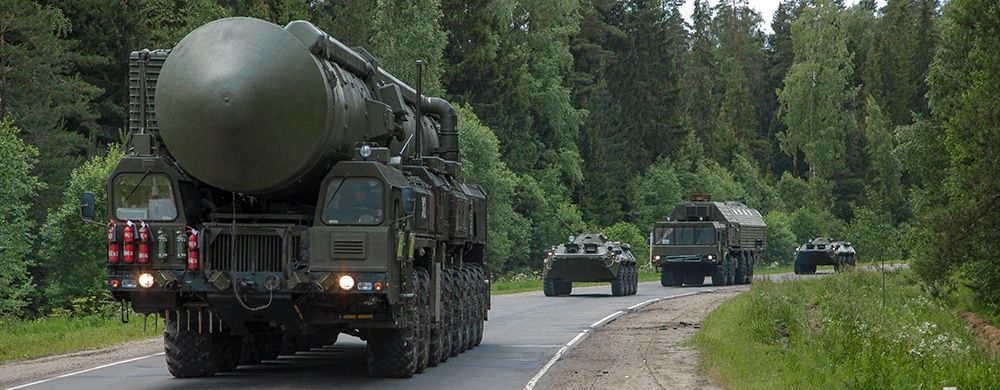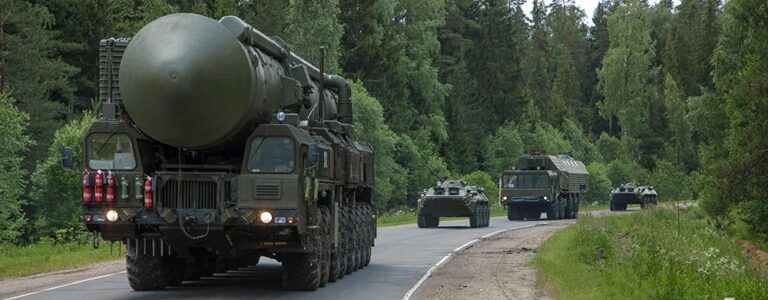
Russian Strategic Missile Forces, July 14, 2021 photo. Image courtesy of Ministry of Defence of the Russian Federation, Creative Commons Attribution 4.0
Page Excerpt: Russia’s ICBM attack on Ukraine marks a critical escalation, striking Dnipro. Ukraine’s air defenses intercepted several missiles, but global security risks grow.
Russia Launches ICBM, Escalating the Conflict
On November 21, 2024, Russia launched an intercontinental ballistic missile (ICBM) at Ukraine. This is the first time Russia has used this powerful weapon in the war. The missile came from the Astrakhan region in Russia and struck Ukraine’s Dnipro city.
What Happened?
Ukraine’s air defense systems intercepted six of the missiles. However, one missile did hit Dnipro, causing damage to important infrastructure. This attack is a major escalation, as ICBMs are powerful weapons with long ranges, and using them in a war could lead to even more destruction.
Why It Matters
- ICBMs are among the most dangerous missiles, often capable of carrying nuclear warheads.
- The attack raises concerns about nuclear escalation.
- Ukraine’s defense systems showed strength by intercepting some missiles, but the threat remains high.
Impact on Ukraine

The missile strike damaged key infrastructure in Dnipro, a city vital to Ukraine’s defense. While no immediate deaths were reported, the attack disrupts essential services. This adds pressure to Ukraine’s already strained resources.
What’s Next?
This ICBM launch signals that the conflict could escalate further. NATO and other global powers will be watching closely. The risk of a larger war is now more real than ever.
Key Points:
- Russia launched an ICBM at Ukraine.
- Ukraine intercepted most of the missiles, but one hit Dnipro.
- The use of an ICBM raises the risk of further escalation.
- The attack caused damage but no immediate casualties.
This is a dangerous turn in the conflict, and the world will be watching how things unfold.
Read more on this subject:
Ukraine’s Missile Strike on Russia: Impact, NATO and Tensions
Russia-Ukraine war: List of key events, day 1,001





